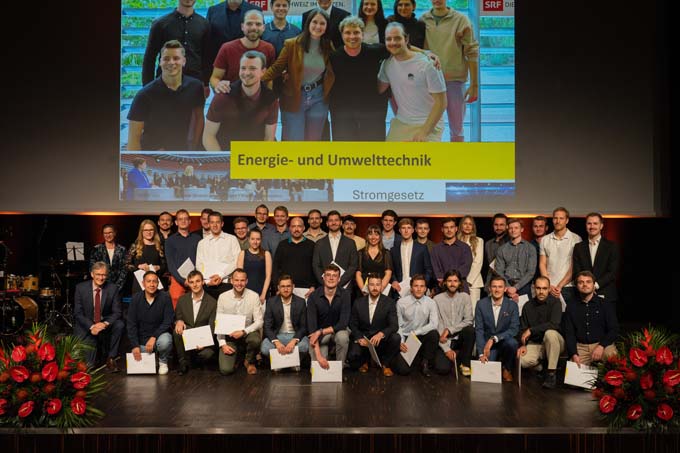Swiss Quality Day 2020 on digital paths
There has never been a Swiss Quality Day like the one on 13 May 2020. Because no large events were allowed due to the Corona pandemic measures, there was a premiere: The SAQ went live via stream for the first time with the popular conference. MQ was there and summarizes the highlights.

For the first time, SAQ Managing Director Marlyse Roulin welcomed guests to the Swiss Quality Day (TSQ 2020). And it was also a premiere in another respect: the traditional Swiss Quality Day took place as a fully digital, supra-regional live event in the Bern Kursaal, which could be experienced in full length via stream. It was a risk - but one that can be described as very successful.
"AI: Opportunity or Risk?"
Fitting for the premiere was also the chosen topic: "Artificial Intelligence (AI): Opportunity or Risk?" - A question that Marlyse Roulin also asked herself in her opening speech. She pointed out above all the opportunities offered by the new technologies. However, these would only be available if companies increasingly created agile structures and moved away from silo thinking. And it is important to keep up to date with the progress of AI. With this year's Swiss Quality Day, the SAQ made a contribution to this. Federal Councillor Guy Parmelin also addressed the audience on the screens with a detailed greeting about AI.
In the first presentation of the morning, Dalith Steiger from SwissCognitive subjected the conference topic to a "reality check". AI is essentially an extension of the increasing networking of objects. It is no longer just about the pure exchange of data, but about "making something out of the data". Making more and more products "smart" is a great opportunity for companies of all sizes. AI makes it possible to let algorithms do what humans don't like to do, save time and eliminate dangers. This opens the gates for the actual human core competence: creativity.
Some of these aspects were addressed again in the subsequent panel discussion. Ewa Ming, Gregory Lukowski and Dalith Steiger spoke with discussion leader Andy Fitze about the question of what AI could do better - also in terms of quality. The participants in the discussion agreed that it was primarily a matter of differentiating good data from bad. Dalith Steiger also pointed out that one should not think that KIT technology will suddenly make the world work by itself. Creative and ethical approaches are still needed to control and use digital processes.
Why standardization for AI?
Filiz Elmas has been Head of Business Unit Development for Artificial Intelligence (AI) at DIN since 1 June 2019. Her task is to capture the synergies of all ongoing AI projects in cooperation with the responsible project managers and to design projects in such a way that the benefits of standardization for business, research and society in the field of AI are at the forefront.
The live-stream digitization of society has recently highlighted the importance of global regulation of standards in the digital context. Filiz Elmas spoke at TSQ 2020 about the importance of standards and norms for AI. "There needs to be an AI strategy among governments." The more important, she said, is the involvement of informed DIN staff, standards and standardization experts to help structure the AI landscape by creating a clear framework for action, alongside other government regulations.
Digitalization in practice - for the benefit of quality
In the afternoon, the focus was on digitalisation - not only in the form of AI - in practice. First, Ruedi Bigler, master farmer, President of Aaremilch and Vice-President of the milk sector organisation, provided an insight into his state-of-the-art farm (see p. 6).
Pascale Lenz from IBM showed how HR tasks are managed in a large corporation with the help of various tools. Here, too: It's all about data and its intelligent analysis. Thanks to these, employees can be promoted and prepared for career steps. With the help of e-learning tools, IBM also provides the necessary training to enable its employees to achieve the goals they have set for themselves. Dominik Weibel from eMDe Blechfabrik then explained the production processes in his company: Based on Microsoft SharePoint and in combination with QR codes, large parts of the paper management are linked, which makes process management transparent and independent of different platforms. The fact that products such as foodstuffs are becoming safer thanks to digitalisation and AI applications was then demonstrated by Stefan Kellenberger from Bühler AG in Uzwil. One of their machines is capable of detecting 250,000 grains of rice per second and sorting out those that do not meet the quality criteria.
Human core competence "creativity
At the end, Gerriet Danz invited the audience to an "Expedition Innovation". He showed that change is a decisive driver of creativity. Using various examples, he demonstrated that something new and successful often emerges when things can be linked in a new way. In this respect, he said, one can learn a lot from children: "They just start, while adults first discuss how a team should be put together." With creativity, boundaries can be crossed.
This inspiring lecture concluded the exceptional Swiss Quality Day 2020. In his closing remarks, SAQ President Ruedi Lustenberger pointed out that developments cannot be stopped. "Development happens." But: "You can't forbid intelligent people to think. Because without human intelligence, there would be no artificial intelligence either".
The next Swiss Quality Day is scheduled for 4 May 2021, on the topic of "Circular Economy". Certainly, some positive experiences from this year's livestream will also be incorporated into the concept for the next event. It is to be hoped that personal exchange among the attendees will then also be possible again. Because networking via livestream is just not the same ...









